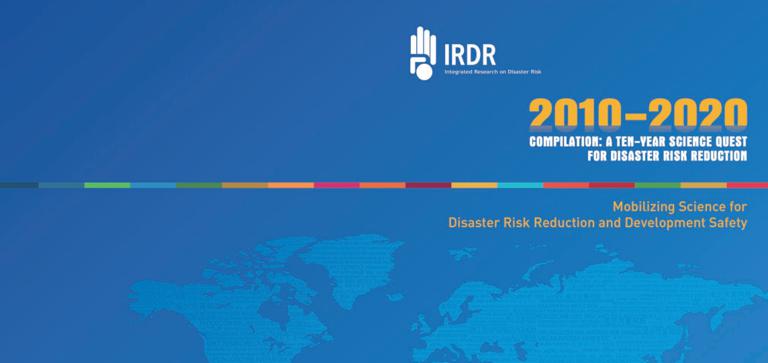
We live in unprecedented times. In the ten years since the establishment of the Integrated Research on Disaster Risk (IRDR) program, disasters such as the 2010 Haiti earthquake, the 2013 Haiyan typhoon and the current COVID-19 pandemic have upended lives and livelihoods. Hazard events are becoming both more frequent and intense because of human-induced climate change, exposing vulnerabilities that undermine resilience building and sustainable development.
The Sendai Framework for Disaster Risk Reduction 2015-2030 sets a clear agenda for global action to reduce disaster risk, and as we near its midway point, stepped up action to achieve its targets is urgently needed. It is increasingly clear that the combined effects of millions of decisions and investments are building risk. And because systems are so intimately connected – health, economies, ecosystems, travel, trade, food and infrastructure- a change in one part of one system has repercussions across many other systems.
Over its ten years of operation, IRDR’s research and outreach activities have contributed to demonstrating that scientific and technological knowledge can be put into practice to accelerate action to achieve the Sendai Framework. IRDR’s vibrant community of scientists and practitioners from all continents and generations has contributed to a much-needed shift in focus from responding to disasters after they happen to preventing and managing disaster risk more holistically. Promoting and improving dialogue and cooperation among scientific and technological communities, policymakers and all other relevant stakeholders, to facilitate effective decision-making in disaster risk management has been core to these efforts.
Access Link: https://ikcest-drr.osgeo.cn/static/upload/f0/f00826d6-d402-11eb-8317-00163e0618d6.pdf
Comment list ( 0 )
